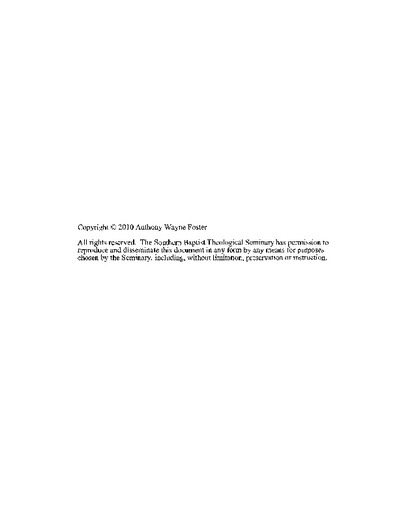| dc.description.abstract | The purpose of this mixed method content analysis and descriptive study
was to determine the core courses, course descriptors, and described competencies of
Leadership Studies curricula at select Christian higher educational institutions.
An extensive literature review revealed the complex nature of the issues
affecting the current study. It set the theological foundations for a Christian view of
the curriculum and leadership authority, biblical models, and their parallels in the
leadership literature. The Christian leadership curriculum was approached from a
standpoint of lifespan development, curriculum design, essential leadership
competencies, and the integration of leadership literature.
After a descriptive analysis of the study methodology, the results of the
study revealed the distribution of programs and degree types by category and
percentage, a census and categorization of courses offered in leadership programs at
CCCU member schools, and definitions of competencies taught in those courses. It
was discovered that several discrete categories of leadership programs exist. Program
objectives were analyzed to yield a categorization of program objectives by rank.
Conclusions were drawn based on the frequency of courses, the
competencies that are being taught, and course objectives that emerged. The results of
a comparative analysis revealed that precedent competencies from other select studies
were present in the programs, but no evidence was found to affirm that the
perceptions of importance associated with of the competencies correlates to the
frequency at which they are being taught. Leadership development models for the
programs were qualified in relation to Kiedis' Taxonomy of Leadership Development
Models.
Finally, the implications ofthe research were extensively examined in
regard to the study methodology, the categories that emerged, and what was revealed
as missing. Applications of the research were posited in regard to definitions of
leadership development, content analysis, the design and delivery of the curriculum,
exemplar programs, and recommendations for the integration of principles and
pedagogical issues which surfaced in the course of the study. Extensive appendices
report descriptive data that emerged from the study.
Keywords: Leadership, content analysis, leadership curriculum, curriculum
design, leadership competency, leadership development, distance learning, Council for
Christian Colleges and Universities, CCCU, leadership degree | en_US |

